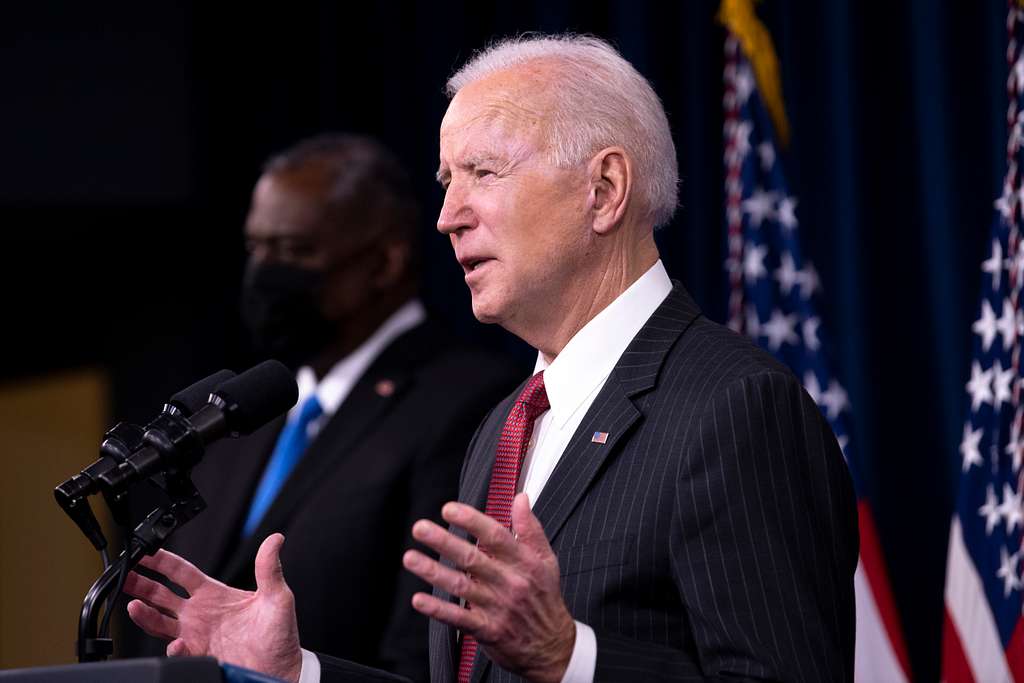Over 73 minutes, Biden championed the Inflation Reduction Act and infrastructure reforms and described climate change as “an existential threat”. The second State of the Union address is widely seen as a test run for the President’s reelection run next year.
—
In a 73-minute-long State of the Union address on Tuesday, US President Joe Biden touched on issues ranging from inflation and police reform to immigration and the war in Ukraine. He also talked about climate change, which he described as “an existential threat” to which every state is vulnerable, no matter if “red or blue”.
Biden, whose speech was widely seen as a test run for his reelection in 2024, talked about the damages caused by extreme weather events in the US, adding that he is “proud of how America is at last stepping up to the challenge.”
2022 was the nation’s third-costliest year ever for climate disasters. A total of 18 major climate disasters collectively racked up US$165 billion in damages and claimed 474 lives. Last year’s climate disasters included eleven severe storm events, three tropical cyclones, the Kentucky flooding, Western wildfires, the Central and Western drought, as well as December’s historic Arctic blast. Hurricane Ian alone cost the nation about $112.9 billion. Moreover, a new Census Bureau tally published earlier this week suggested that climate disasters displaced more than 3 million Americans in 2022.
Biden also championed climate law, touting the historic investments in the Inflation Reduction Act (IRA), the nation’s landmark $369 billion climate and energy bill which was signed into law last August, as the “most significant […] ever to tackle the climate crisis, lowering utility bills, creating American jobs, and leading the world to a clean energy future.”
The IRA includes investments in renewables, particularly solar and offshore wind, as well as new credits for nuclear power production and clean hydrogen and incentives to develop more facilities that produce clean energy inputs, components, and finished products. It also provides huge incentives for carbon capture, utilization, and sequestration (CCUS) projects as well as tax breaks to make electric vehicles (EVs) more affordable and help low-income households to make the switch from gas-powered to electric vehicles.
He also hailed steps taken outside of the IRA, praising the “once-in-a-generation” bipartisan Infrastructure Law for speeding up the replacement of all lead pipes in the US.
In his second State of the Union address since his election in 2020, Biden also blasted oil companies for their “outrageous” record profits amid a global energy crisis, calling them out for “rewarding their CEOs and shareholders” instead of pumping more crude to “keep gas prices down.”
Exxon, Chevron, and other oil giants BP, Shell, and TotalEnergies are poised to record a combined $190 billion in profits for 2022. Together, the companies are responsible for more than 10% of global carbon emissions since 1965.
He also went off-script by admitting that the country is still going to “need oil for at least another decade […] and beyond that,” drawing laughter from Republicans.
Despite the significant progress made in recent months, the road to net zero is still long and the US remains the world’s largest historical emitter of climate pollution, which increased by 1.3% in 2022 compared to the previous year.
Featured image by Lisa Ferdinando
You might also like: Top 6 Environmental Issues the US Is Facing in 2023


















